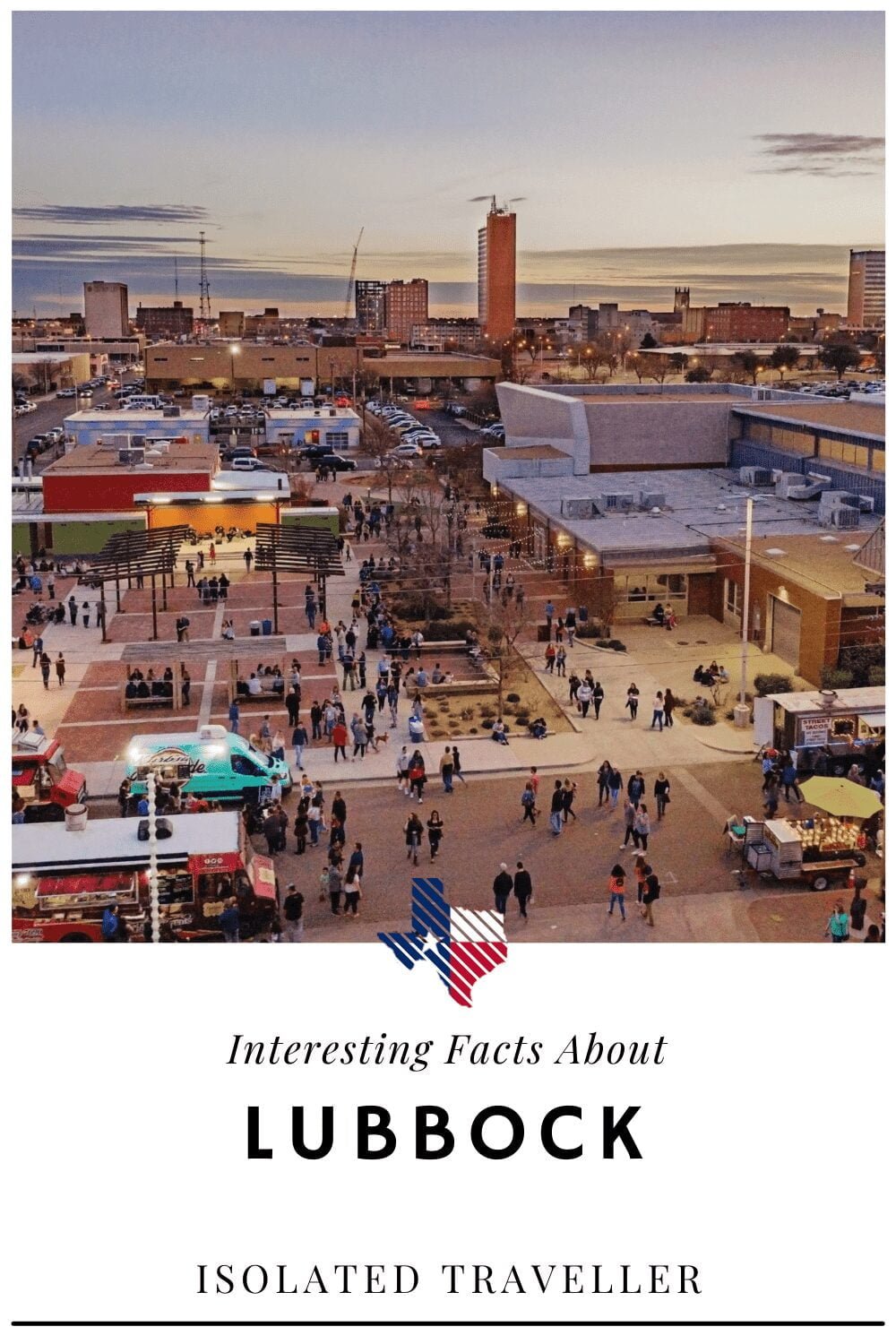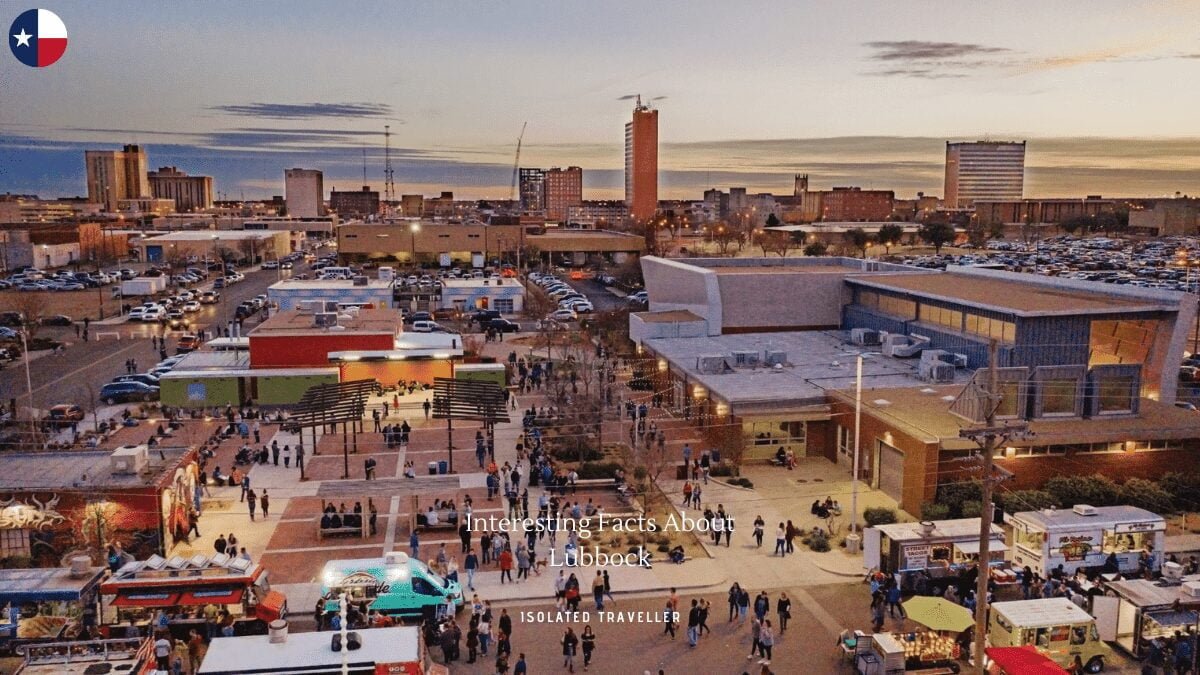Facts About Lubbock
-
Lubbock is the 11th-most populous city in the U.S. state of Texas and the county seat of Lubbock County with an estimated population of 253,851.
-
The city is in the northwestern part of the state, a region known historically and geographically as the Llano Estacado, and ecologically is part of the southern end of the High Plains, lying at the economic centre of the Lubbock metropolitan area,
-
Lubbock’s nickname, “Hub City”, derives from it being the economic, educational, and health-care hub of the multicounty region, north of the Permian Basin and south of the Texas Panhandle, commonly called the South Plains.
-
Lubbock County was founded in 1876. It was named after Thomas Saltus Lubbock, former Texas Ranger and brother of Francis Lubbock, governor of Texas during the Civil War.
-
Lubbock became the county seat in 1891 and was incorporated on March 16, 1909.
-
The city is home to the Lubbock Lake Landmark, part of the Museum of Texas Tech University.
-
The city has a total area of 123.55 sq mi, of which, 122.41 sq mi of it is land and 1.14 sq is covered by water.
-
The Lubbock area is the largest contiguous cotton-growing region in the world and is heavily dependent on federal government agricultural subsidies and on irrigation water drawn from the Ogallala Aquifer.
-
Lubbock is twinned with the city of Musashino, Tokyo, Japan and was former sister city with León, Guanajuato, Mexico.
-
Lubbock elevation is 3,256 ft above sea level.


